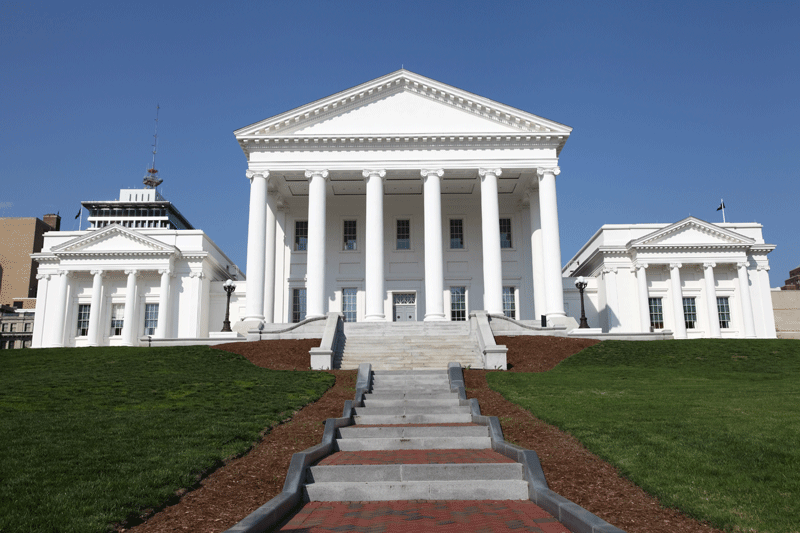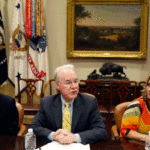- Current Events New Alabama Congressional District Selects Candidates
- Current Events Nebraska Rejects Winner-Take-All Proposal
- Citizenship Voting Under Age 18
- Citizenship Citizenship in Action
- Democratic Party Biden’s and Trump’s Recent Primary Results
- Elections Trump and Biden Win South Carolina and Michigan Primaries
What Does Virginia’s Primary Mean for the Nation’s Future?
On Tuesday, voters in Virginia will choose their nominees for governor. This is a primary election, meaning that Democrats will vote for a Democratic nominee, and Republicans will vote for a Republican nominee, who will then go head-to-head in November. However, for both parties, the issue of Trump may have a great influence over the decisions of voters. Meanwhile, because this is the first statewide election since the Trump presidency began, the rest of the nation is watching Virginia–a longtime “blue,” or Democratic, state–to see what happens.
The Race for Democrats
The Democrats must choose between Lieutenant Governor Ralph Northam and former U.S. Representative Tom Perriello. The race is very close. Perriello is the more left-leaning of the two candidates. He has the support of Senators Bernie Sanders and Elizabeth Warren, while Northam is seen as a more traditional, establishment Democrat and is backed by Tim Kaine, Hillary Clinton’s running mate in 2016. In many ways, this election mirrors the 2016 primary campaign between Sanders and Clinton, and illustrates the division between progressive and establishment Democrats in the party which helped lead to Republican gains in 2016.
Despite their differences, however, Northam and Perriello are similar on policy. Also, though they have run very different campaigns, both candidates have tried to energize voters by capitalizing on Virginians’ anger at Trump. Democrats hope that, no matter which candidate wins the primary, the party will be able to unite fully in order to defeat a Republican candidate in November.
The Race for Republicans
The Republicans face a three-way competition, though former Republican National Committee Chairman Ed Gillespie seems to be the favorite. The other two candidates are former Trump campaign chairman Corey Stewart, and state Senator Frank Wagner.
The issue of President Trump is a tricky one for Republicans in Virginia. Here, Trump is extremely unpopular: he lost the state by six points in November, and in April of this year his approval rating was only 36 percent. Even so, Corey Stewart, Gillespie’s fiercest competition, was a former Trump campaign chairman and has openly allied himself with Trump. During this campaign, he has tried to motivate pro-Trump voters by promoting anti-immigration and Virginia-first policies. This puts Gillespie in a difficult position: he doesn’t want to align himself too closely with Trump, but at the same time, he risks alienating right-wing voters if he doesn’t. Throughout his campaign, he has tried to emphasize that this race is about Virginia, not about national politics. Whether or not he is successful with this message will become clear after Tuesday’s vote.
Meanwhile, the rest of the nation will be watching to see how much Trump’s current unpopularity will influence future statewide elections. Democrats will learn whether or not an anti-Trump message is enough to get them elected, and Republicans will learn how far they need to distance themselves from the president in order to survive politically.



